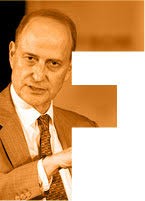2013 Centennial
The Maison Française celebrated its Centennial in 2013 with an exhibition about the history of the Maison Française and of the special relationship it has helped foster over the past century between Columbia University and France.

OUNDED A CENTURY AGO, IN 1913, as a “center for the study of French civilization and French literature,” the Columbia Maison Française was the first such cultural institute established on an American campus. This singular French house was launched in tandem with a visiting professor exchange agreement with the Sorbonne. Columbia President Nicholas Murray Butler pioneered these initiatives as part of an effort to promote a greater international focus at the university and to encourage the study of foreign languages and cultures.
In its early days the Maison Française also served as headquarters for the newly formed France-America Society, which nurtured ties between the sister republics and was presided over by Butler with J. P. Morgan as treasurer. Together with the visiting professorship, these initiatives put Columbia at the forefront of French-American academic and cultural exchange on the eve of World War I, making it a pioneer in the emerging “France-America movement” that was further propelled by the war, when French replaced German as the most studied foreign language in the U.S.—a position it would hold until the 1970s.
Founded a century ago, in 1913, as a "Center for the study of French civilization and French literature," the Columbia Maison Française was the first such cultural institute established on an American campus.
(continued from above)
Throughout its illustrious history, the Maison Française has led the way in exposing New York audiences to eminent French and Francophone thinkers, writers, artists, and political figures, while promoting rich exchanges across disciplines on a wide range of topics. And at critical moments, events organized by the Maison Française have helped Americans interpret French and Francophone history and ideas even as the events themselves were unfolding. For example, during World War II the Maison Française mounted two significant exhibits showcasing the efforts of de Gaulle and the French Resistance, with Jean-Paul Sartre speaking in April 1945 at the opening of the second exhibit on his very first visit to the U.S. Later, starting in the 1970s, conferences and talks held at the Maison facilitated the dissemination of “French theory” into the American academic mainstream. The last two decades have seen the scope of programming broaden to include Francophone and post-colonial studies, areas of particular strength at Columbia. Recent major conferences have treated such topics as History and Historiography of Algerian Independence, Henri Bergson and American Philosophy, and Arts Policies in the U.S. and France—simultaneously advancing new ideas and cutting-edge scholarship. Topical, innovative programming makes the Maison Française one of the most vital intellectual and cultural forums on the Columbia campus today.
The unique relationship long fostered by the Maison Française between Columbia and France remains as strong as ever. The Maison is the thriving hub of a network of departments and programs that make Columbia a leading center of French-American exchange and of French and Francophone studies.
Today, a century after President Butler established the Maison Française to broaden Columbia’s international perspective, the university continues to uphold this tradition. President Bollinger has made global education a priority, and France remains a focus of this effort, as witnessed by the creation of the Alliance Program and the transformation of Reid Hall into the Columbia Global Centers / Europe. The Maison Française plays a central role in furthering Columbia’s mission as a global university engaging issues across borders and across disciplines.
— by Shanny Peer and Paul LeClerc